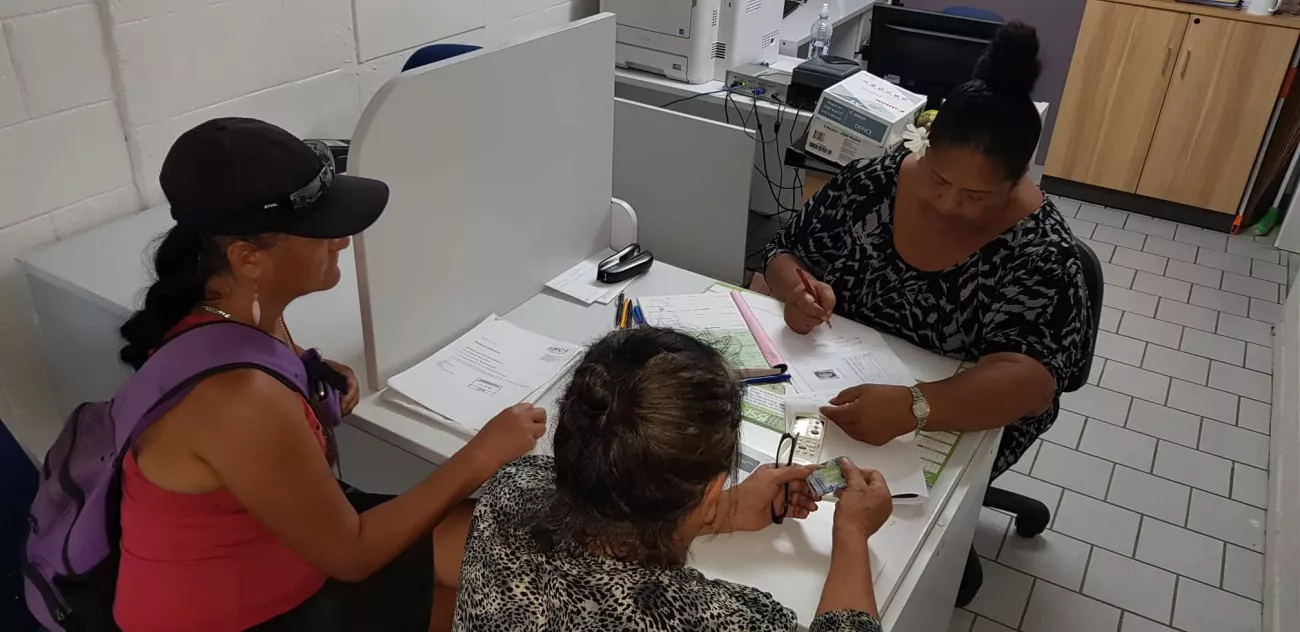
Rarotonga, Cook Islands, 2 June 2023 - The Ministry of Foreign Affairs and Immigration (MFAI) have initiated an awareness campaign to engage the public on changes to the Cook Islands immigration visa and permit regime that will support the full implementation of the Cook Islands Immigration Act 2021.
The awareness campaign is underway and will be delivered by the Immigration team of MFAI to stakeholders throughout June. The Immigration Act was passed on 6 December 2021, and the Immigration Regulations were approved by Cabinet on 18 April 2023.
The passing of the Act in 2021 and approval of the Regulations a few weeks ago concludes a 5-year process of legislative review, development, and enactment that began in 2017 and involved extensive public and private consultations within and beyond the Cook Islands with residents, the business community, community leaders, government agencies, interest groups, and a Parliamentary Select Committee process.
In July 2022, module one of the new immigration border management system, ASYPX, was rolled out by MFAI at the Cook Islands international border. The ASYPX Automated System for Passenger (pax) processing is a pilot system developed by MFAI in partnership with the United Nations Conference for Trade and Development (UNCTAD) with funding and technical support from the New Zealand Government.
An online visa and permit processing system, currently in development, is the second module to be developed by MFAI with UNCTAD as part of ASYPX. Module two will streamline the processing and issuance of immigration visas and permits, thereby instituting a paperless process, with the move to paperless systems strongly supported during the national immigration stakeholder consultations.
“What is exciting for MFAI about the transition to ASYPX is the development and operationalisation of an online visa and permit application process,” said MFAI Acting Principal Immigration Officer, Chere Arthur. “Employers and individuals will have access to ASYPX via our MFAI website where they can submit visa and permit applications online and make payments, which means no more trips to MFAI headquarters and reduced processing times for application outcomes.”
“We anticipate and have planned for teething issues as our Immigration team and public familiarise themselves with these changes," she added. "We’ve built into our roll-out program for the new immigration system some flexibility, so our business community and public continue to receive necessary support for critical economic recovery efforts relating to visitors and movements at our border and permits and visa for those eligible for continuing resident rights”.
The Immigration team will expand their engagement efforts this month with employer groups, individuals, and interested parties to provide further awareness and support on the new immigration permit and visa regime, including as relates to the obligations and responsibilities for sponsorship, immigration fees and the new permit categories.
MFAI Secretary Tepaeru Herrmann acknowledged that a multitude of partners had supported MFAI's delivery of immigration systems and service delivery improvements.
“It has been a challenging couple of years for our immigration service delivery, and we could not have delivered these improvements without the contributions and partnerships we’ve cultivated with our domestic stakeholders – government, business, and community – and our international partners including the New Zealand Ministry of Business Innovation and Enterprise, UNCTAD, Pacific Immigration Development Community and others," Secretary Herrmann said.
"Fundamental to the improvements we're instituting is a Cook Islands-designed system that can be integrated with the broader international immigration system, particularly of our closest partners, including New Zealand, in due course."
MFAI are encouraging the public to visit the MFAI website www.mfai.gov.ck where information on the new immigration permit and visa regime has been uploaded and application forms are available.
The recalibration of MFAI's immigration service delivery, including full online processing capability, personnel training, and recruitment will continue to be rolled out over the next year.
